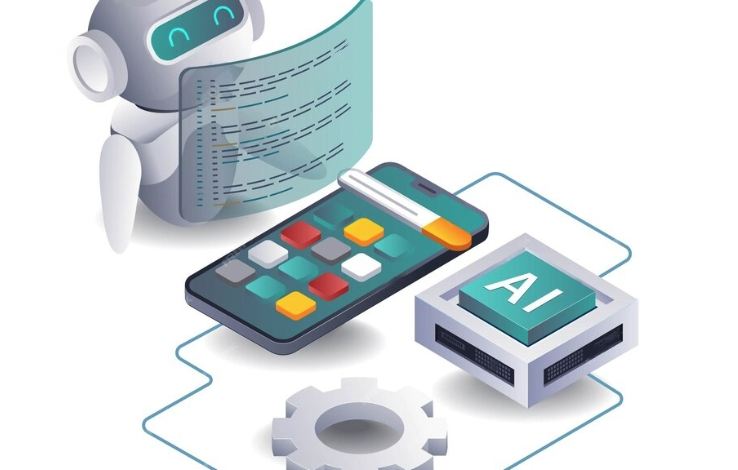AI Invoice Processing for Transforming Invoice Management

Invoice is a crucial part of any business, and its manual management is becoming challenging compared to earlier times when the lack of technology matched a simpler need. Imagine when you get an invoice and get confused by the amount and transaction, wondering if you have seen that invoice before but can not recall where! This situation is common in every business, whether small or large. But what if there was a system that could track all the invoices with a single click? AI invoice processing can do a lot more than this. In this article, we’ll explore what it is and how it can be applied. Let’s start by understanding AI invoice processing!
What is AI-based invoice processing?
Artificial intelligence is being used for invoice processing, which helps automate the extraction, interpretation, and management of invoice data. This technology can read as well as understand invoices of different formats plus can automatically capture key details from the invoice, such as invoice numbers, amounts, dates, and vendors’ information. After that, AI validates and categorizes as per data which results in the reduction of time invested in manual entries and also minimizes errors. With the help of AI, businesses can speed up the invoicing processing by automating it, improving accuracy, streamlining financial operations without human intervention, and reducing human errors.
Key technologies for modern invoice processing
Optical Character Recognition (OCR):
OCR can read texts from invoices in paper or PDF files as it scans and converts texts into digital forms and extracts relevant information.
Natural Language Processing (NLP):
NLP enables the AI to understand and interpret text by identifying invoice structures, key terms, and variations in language or format in different invoices.
Machine Learning (ML):
Using historical data, the ML algorithms improve the accuracy rate of invoice classification, extraction of data, and detection of errors, and optimize the system with time.
Robotic Process Automation (RPA):
RPA drives repetitive business processes such as data entry and invoice validation, and others support the incorporation of AI-driven insights into them.
Difference Between Manual and AI Invoice Processing
Applications of AI in Invoice Processing
The difference between manual and artificial intelligence invoice processing is quite simple, but its applications should be done correctly to get the maximum benefit. Let’s examine the applications.
1. Automated Data Input and Capture
Through OCR and NLP, AI scans the invoices, regardless of their medium-paper, PDF, or image files, and captures all important vendor names, invoice numbers, line items, dates, and amounts for processing. This effectively rules out the need for manual data entry and speeds up data capture into account more accurately.
2. Intelligent Document Classification
AI algorithms categorize and arrange invoices automatically by parameters like the vendor name and invoice type- for instance, standard invoice or credit note, or even by department. The said classification enables streamlined management of the invoices, which makes it easier to retrieve and process the proper document without manually sorting.
3. Advanced Three-Way Invoice Reconciliation
AI models automatically perform three-way matching that compares the data from the invoice to the POs and GRNs involved with much lesser errors and overpayment potential and ensures compliance by flagging such mismatches for further consideration.
4. Preventive Error Resolution
AI automatically scans invoices for potential errors, including missing data or anomalies- for example, incorrect tax rates or invalid vendor information and initiates predefined workflows to correct errors. This reduces back-and-forth between teams and speeds up the exception-handling process.
5. Automating Invoice Coding and GL Assignment
AI systems can interpret and ascribe the right general ledger (GL) codes to every line item in an invoice based on business rules and historical data. This ensures that the expenses are allocated and accurately recorded in the correct accounts with minimal effort in the reconciliation processes.
6. Duplicate Invoices Identification
Artificial Intelligence can identify duplicate invoices with pattern recognition and historical data analysis by finding similarities in their invoice numbers, vendor details, and amount paid, while the invoice formats may differ. This reduces the overpayment risk while improving proper bookkeeping.
7. Line Item Analysis and Classification
AI captures more than a simple extract of data. It extracts even more elaborate, detailed line-item information such as product descriptions, quantity, and unit prices. Every line item is categorized according to a defined business category, which can improve spend analysis and budgeting.
8. Simplified Invoice Approval Workflows
Workflow automation using AI will automatically send an invoice for approval to the right approvers based on parameters such as the department, project, or approval limits. It can also prioritize urgent invoices, send reminders, and track status, thus reducing bottlenecks and speeding up the payables cycle.
9. Data Enrichment and Validation
AI enhances the output invoice data by cross-checking it against their databases or third-party sources, such as a vendor master data set, tax registries, etc. This ensures that the data is accurate and helps validate key information like vendor addresses, tax details, and contract terms.
10. Compatibility with Multi-Language
Multilanguage capabilities of AI-powered systems ensure that global organizations can process invoices in different languages and formats. It accommodates the differences in various regional tax codes, currency symbols, and date formats; hence, no hiccups in processing invoices across regions and in line with local country regulations.
All these applications demonstrate how AI enhances various aspects of invoice processing, making them efficient, accurate, and scalable. Implementing these applications can be a tough task but businesses can hire AI developers to implement tailored solutions for invoice management.
The Benefits of AI in Invoice Processing
AI streamlines error-free invoice management by streamlining complex workflows, permitting advanced data validation, and automating repetitive tasks. Let’s discuss the benefits intensely.
1. Faster Processing Time
AI can automate time-consuming procedures, like extracting and validating data for invoices. This significantly reduces invoice processing time, thereby accelerating the whole accounts payable workflow. Invoices can be processed and approved many times faster than manual processing.
2. Increased Accuracy
With AI, human errors experienced in manual inputting of information are also eliminated. For instance, invoice amounts, vendor details, and details of line items are more accurate and validated in the system. This would translate to fewer disputes and data accuracy.
3. Cost Savings
One way AI saves costs is by reducing the amount of manual labor involved in repetitive tasks. It, therefore, reduces labor costs. Besides, it saves on errors that would normally require corrected payments or overpayments, which generally have a significant cost attached. Generally, the price, therefore, is efficient.
4. Scalability and Flexibility
AI scales very well in accommodating growing volumes of invoices without affecting processing speed or accuracy. It becomes a suitable solution for businesses that grow rapidly or have seasonal flows in invoices.
5. Improved Cash Flow Management
AI accelerates the invoice approval process, which enables companies to optimize payment cycles. Timely approvals would prevent late fees, help them capture early payment discounts, and improve the predictability of cash flows.
6. Detection of Frauds and Reduction of Associated Risk
AI, through pattern recognition, detects anomalies and abnormalities, such as duplicate payments or even incorrect details from vendors, in invoices. It proactively prevents and detects fraud by reducing financial risk and strengthening compliance.
Any business can gain these benefits by integrating technologies like OCR, NLP, and RPA into its invoice processing system. This will be more accurate if done with the help of AI consulting services to ensure smooth integration of artificial intelligence, which not only automates invoice processing but also improves scalability and accuracy.
Conclusion
AI invoice processing is transforming the way a business can handle its financial operations; with the help of artificial intelligence, it can automate tasks like data capture, classifications, and validation. AI reduces the burden of manual work of invoice processing which minimizes errors and speeds up the entire process. Whether it’s about improving accuracy, detecting duplicate invoices, or ensuring their on-time approvals, AI brings efficiency and scalability to invoice management. As businesses grow continuously, AI invoice processing is a reliable solution to streamline workflow with enhanced accuracy resulting in time saving as well as costs.



